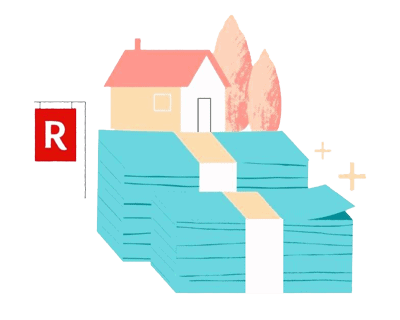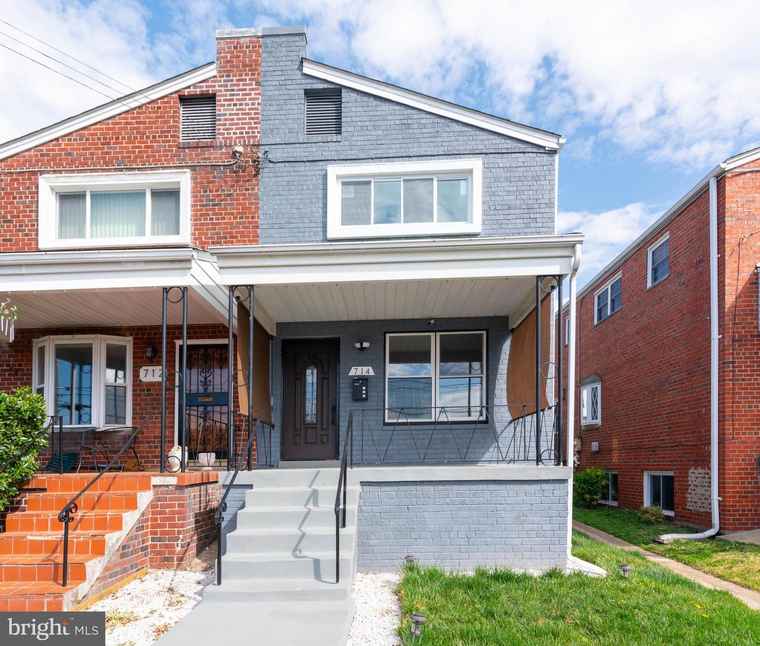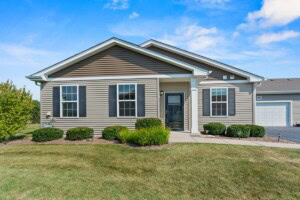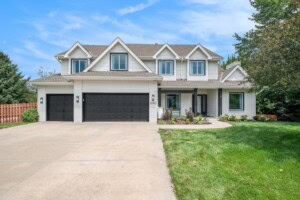Buying a home comes with many decisions, and one option worth considering is purchasing a foreclosed property. These homes are often priced lower than comparable listings, making them an appealing choice for buyers looking for value or investment opportunities.
Redfin has put together the ultimate step-by-step guide to help you understand how to buy a foreclosed home. From finding houses to tour and what financing options you have, there’s a lot to learn about buying a home in foreclosure. Whether you’re looking at homes for sale in San Antonio, TX, or in Wilmington DE, there are options for you.
Key takeaways
- A foreclosed home means the buyer can no longer make payments and the bank has taken the house.
- There are several types of foreclosure sales – auctions, bank-owned properties, government-owned properties, preforeclosures, and short sales.
- Buying a foreclosed home can be a good way to buy a home for less than its value, but you’ll likely buy the home as-is.
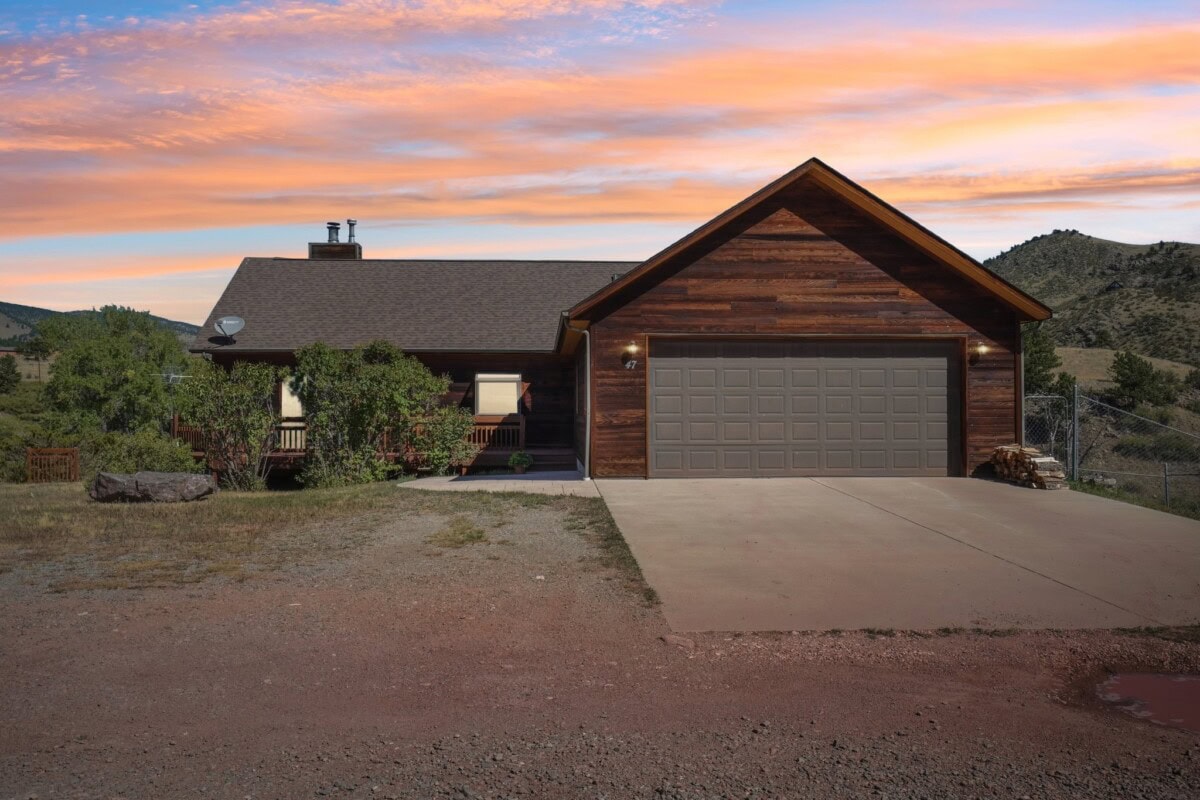
What is foreclosure?
Foreclosure is the process of a bank or lender reclaiming a property from a buyer who can no longer make payments. All mortgages place a lien on the property in the event that a lender needs to take ownership of the home. Once the bank or lender reclaims the property, they usually sell the home – often for less than the property is worth – to cover the buyer’s debts.
Why buy a foreclosed home?
Buying a foreclosed home can be an appealing option for several reasons. These properties are often priced below market value, making them attractive to buyers looking for a good deal or hoping to build equity quickly. Investors may see foreclosure purchases as an opportunity to renovate and resell for a profit, while homebuyers may find a house they wouldn’t otherwise be able to afford.
Additionally, some foreclosed homes are in desirable neighborhoods, offering a chance to buy in a competitive area at a lower price. While the process can be more complex than a traditional home purchase, the potential savings and investment opportunities make foreclosures worth considering.
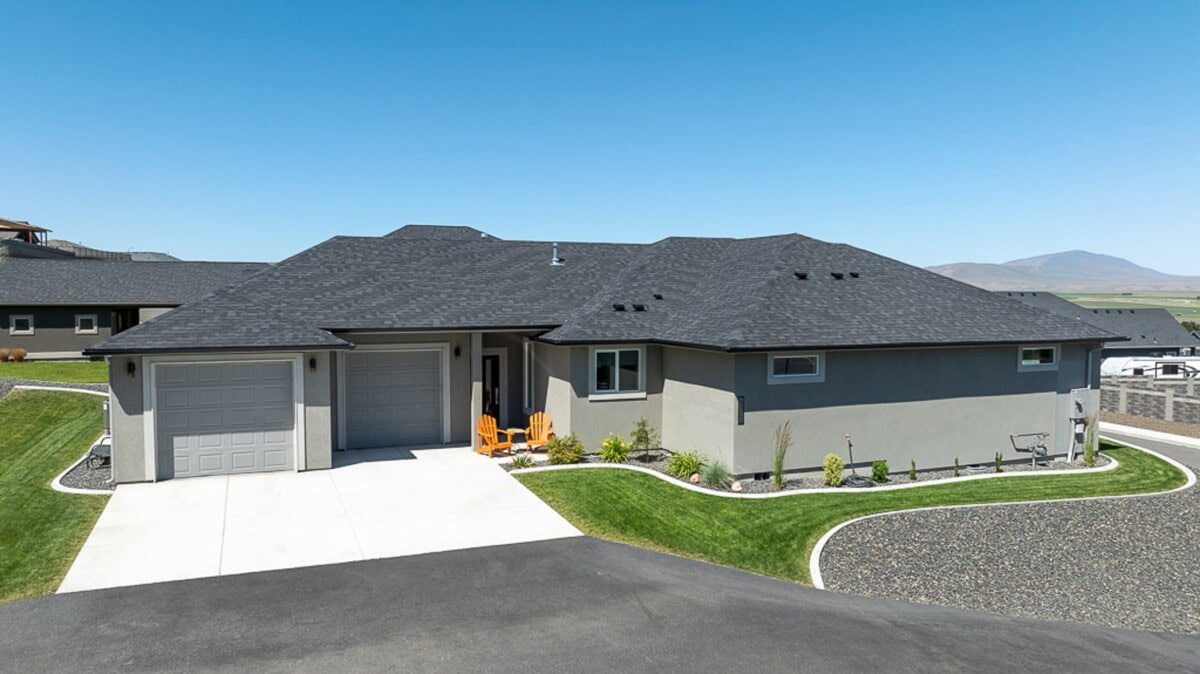
How to buy a foreclosed home
Buying a foreclosed home requires a different strategy than a traditional home purchase, but with the right approach and resources, you may be able to buy a great house at a good price.
Step 1: Learn the types of foreclosure sales
There are a few types of foreclosure sales that can impact how you buy the home. Some are more common than others, so let’s take a look at them.
Auctions
The most common type of foreclosure sale is by an auction. These auctions are typically in-person and are open to the public. When you buy a home at auction, you’ll typically buy the home as-is. That means there’s no home inspection or appraisal. Most auction properties are available online ahead of time, which provides you time to do your research. Look into purchase histories, drive by the property, and evaluate all available information. However, chances are you can buy the home below market value and you won’t need to negotiate with a seller or bank.
If you want to buy a home at an auction, you may have to register before attending, so be sure to look up the auction regulations for which you plan to attend. Most auctions require all-cash bids, so you’ll need to have enough funds to make the purchase. If the auction accepts financing, make sure you have a pre-approval ready. If possible, consult a real estate attorney to be sure you understand the realities of the auction and the transaction rules.
Bank-owned properties
Bank-owned properties, often called real estate-owned (REO) properties, are owned by the lender. These properties have likely not sold at auction and are under the lender’s ownership. The bank or lender typically won’t sell a home directly to you, the buyer.
You’ll need to coordinate with your real estate agent in order to tour these properties. Lenders will typically clear the title and vacate the property before selling it to you. They’re often sold as-is, so be aware of the home’s condition before making an offer.
Government-owned properties
Some mortgages are government-backed, like VA loans and FHA loans. If a buyer with a government-backed loan goes into foreclosure, the government will take control of the property. The homes are sold to brokers who sell the property on the government’s behalf. If you want to buy a government-owned property, you’ll need to contact a government-registered broker, listed on the U.S. Department of Housing and Urban Development (HUD) website.
Preforeclosures
A preforeclosure is a home that is in the beginning stages of foreclosure. At this point, the bank hasn’t seized the property, but the owners received a default notice. Preforeclosures aren’t always for sale, as homeowners may be working to fix the default payments. In some cases, the homeowners are looking for a buyer looking to pay all cash for the property.
The homeowner is likely looking for a way to avoid foreclosure and the impact on their credit score. As a result, you may be able to buy the home for less. However, in preforeclosure, you’ll be negotiating with the homeowner rather than the bank.
Preforeclosure can be tricky as sometimes the properties may never be for sale. Other times the owner may pay off their debt before finalizing the sale with a potential buyer.
Short sales
A short sale is not the same as a foreclosure or a pre-foreclosure. Short sales occur when a homeowner sells their home for less than what they owe on the mortgage loan. For example, they may sell the home for $350,000 and still owe $400,000 on the mortgage, meaning they’re “short” $50,000.
The homeowner’s lender must agree to the short sale and approve your offer. It’s also important to know that short sales can take months to complete.
Step 2: Find the right real estate agent
Buying a foreclosed home can be complicated, so it’s important to have a qualified real estate agent. Finding an agent who is experienced in foreclosures, has worked with REO (real estate-owned) agents, or has worked with short sales can help you through the process. An experienced real estate agent can help you find foreclosures, negotiate the price, and understand any state laws.
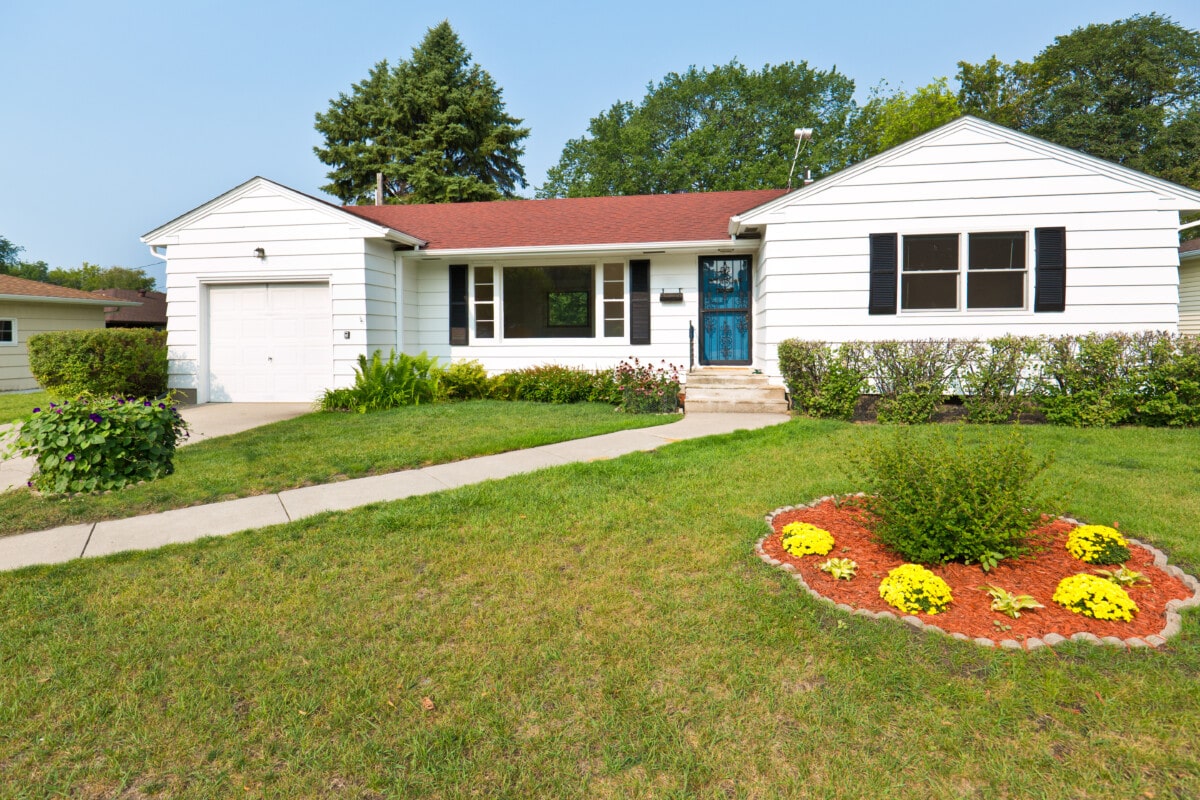
Step 3: Find foreclosed homes for sale
Your real estate agent can help you find foreclosed homes to tour. However, you may also want to look for homes as well. Some places you can find foreclosed homes include:
- U.S. Department of Housing and Urban Development (HUD): Their website lists their inventory of foreclosed homes including what real estate agent to contact.
- Certain lenders: Some banks and lenders, like Bank of America, may list out what foreclosures are available.
- Fannie Mae and Freddie Mac: The Fannie Mae HomePath and Freddie Mac HomeSteps programs show foreclosed homes. You can search by entering your zip code or address.
- Real estate websites: You can also search on real estate websites, like Redfin, by filtering for “foreclosures,” to see what homes are available in your area.
Step 4: Get a mortgage pre-approval
It’s possible to get financing for a foreclosed home, but it’s a competitive market as many real estate investors buy foreclosed homes with cash. Foreclosed properties can attract multiple offers, so if you’re using a mortgage, having a pre-approval makes your offer more competitive and shows the seller (often a bank) that you’re a serious buyer. Consider getting a pre-approval with the bank or lender that owns the foreclosed property, as it can speed up the process.
If a bank or lender is not willing to finance your foreclosure purchase, there are a few other ways you may be able to obtain financing.
FHA 203(k) loan: 203(k) loans are offered through the Federal Housing Administration (FHA). These loans allow borrowers to finance the home purchase in addition to repairs for the home. You can expect to pay a mortgage insurance premium (MIP), which protects your lender, and pay a higher interest rate.
HomePath ReadyBuyer: The HomePath ReadyBuyer program is supported by Fannie Mae and aims to help first-time homebuyers. Homebuyers will need to complete a first-time homebuyer course and receive up to 3% in closing cost assistance for buying a foreclosed home.
HomeSteps: HomeSteps is covered by Freddie Mac and makes it accessible for homeowners to buy REO properties. There are various financing options available for those who qualify.
Step 5: Make an offer on the home
Making an offer on a foreclosed home isn’t the same as negotiating with a seller. Foreclosed homes are sold at the market value determined by the bank, so negotiations look different. Consider a lower offer than the home’s value, as banks may be willing to accept a low offer if they have had the home for some time.
However, if the foreclosure market is popular in your area, you may need to make a more competitive offer – or all cash. Your agent will help you navigate making an offer and decide how much to offer and whether to include any contingencies.
Step 6: Have a home inspection and appraisal
Most foreclosed homes are sold as-is, meaning the seller won’t make repairs. That’s why a thorough home inspection is crucial. A home inspector will check for major issues like structural damage, water damage, or hazards like lead paint. If the home has been vacant for a long time, consider bringing in a specialist to assess any additional risks.
If you’re buying through a traditional foreclosure sale, an inspection contingency may give you the option to back out if major issues arise. However, if you’re purchasing at auction, inspections usually aren’t allowed, so be prepared to cover unexpected repairs.
If you’re financing the purchase, your lender will require a home appraisal to confirm the property’s value and ensure they’re not lending more than it’s worth.
Step 7: Close the sale
If the bank approves your offer and the inspection doesn’t turn up any serious red flags, your sale will progress as normal. There is often a lot of paperwork and back-and-forth discussion between the bank and your agent, so patience is important. Your agent will keep you updated on the process. As soon as the transaction is complete, you will receive the keys and title to the house.
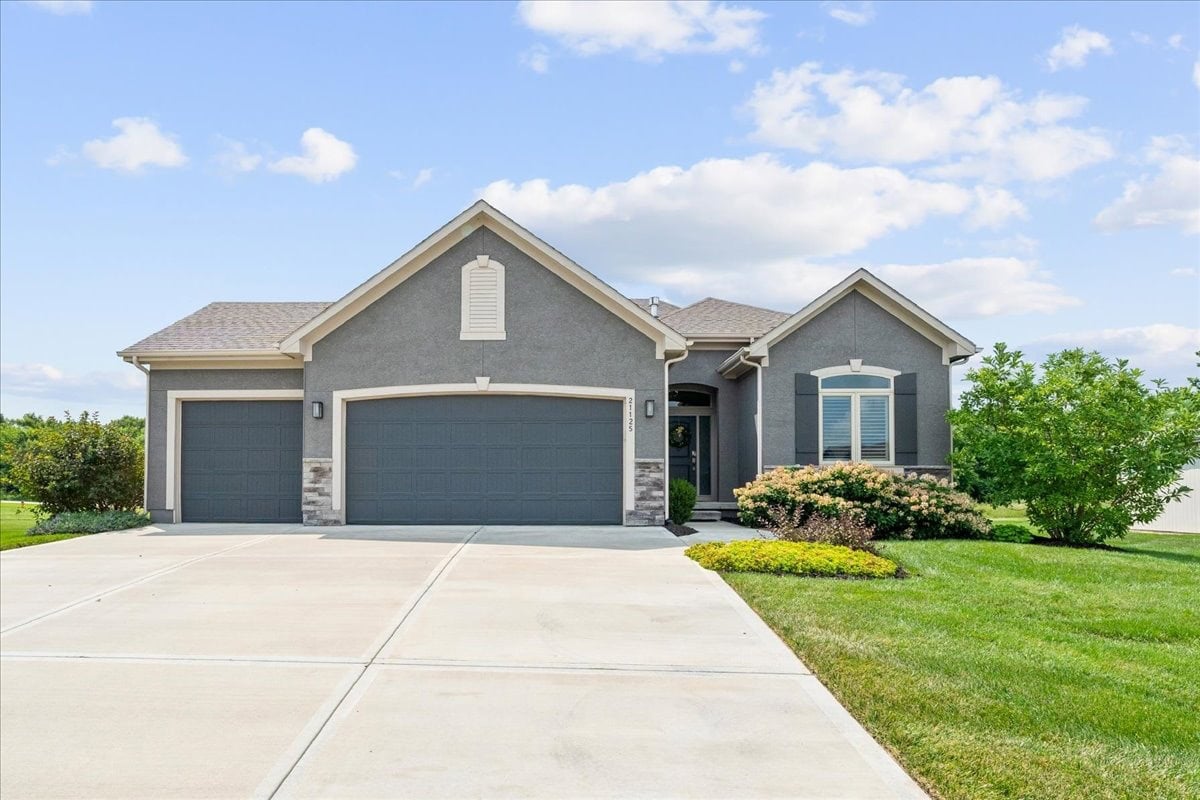
Pros and cons of buying a foreclosed home
If you’re considering buying bank-foreclosed properties, be sure you understand the benefits and drawbacks. Let’s take a look at them.
Pros of buying a foreclosure
Lower prices: Foreclosed homes are almost always less expensive than other homes for sale. These savings can be substantial if the home is listed below market value.
Loan options: Contrary to popular belief, you can get a conventional loan when buying a foreclosure. Alongside options like 203(k) loans, HomePath ReadyBuyer, and Home Steps, there are plenty of financing options available for potential buyers.
Long-term value: If the foreclosure is priced below market value and you’re able to make good repairs on the home, your home’s value may increase. By the time you’re ready to sell, your home’s worth may be more than when you bought it.
Cons of buying a foreclosure
As-is condition: Most foreclosed homes are sold as-is, so there were no repairs or updates made to the home. Therefore, you’ll need to budget for more repairs than you would buying a non-foreclosed home.
Increased repairs and maintenance: Some foreclosures have been left in disrepair meaning you may face additional repairs and maintenance. In some cases, there may be structural or electrical problems that require expensive repairs.
Complex process and competition: Buying a foreclosed home can be a complicated process from finding a home, getting preapproved, and waiting for the bank to approve the offer. Additionally, real estate investors often buy up foreclosed homes with cash, making the process competitive. However, a trusted real estate agent can help you navigate the process.
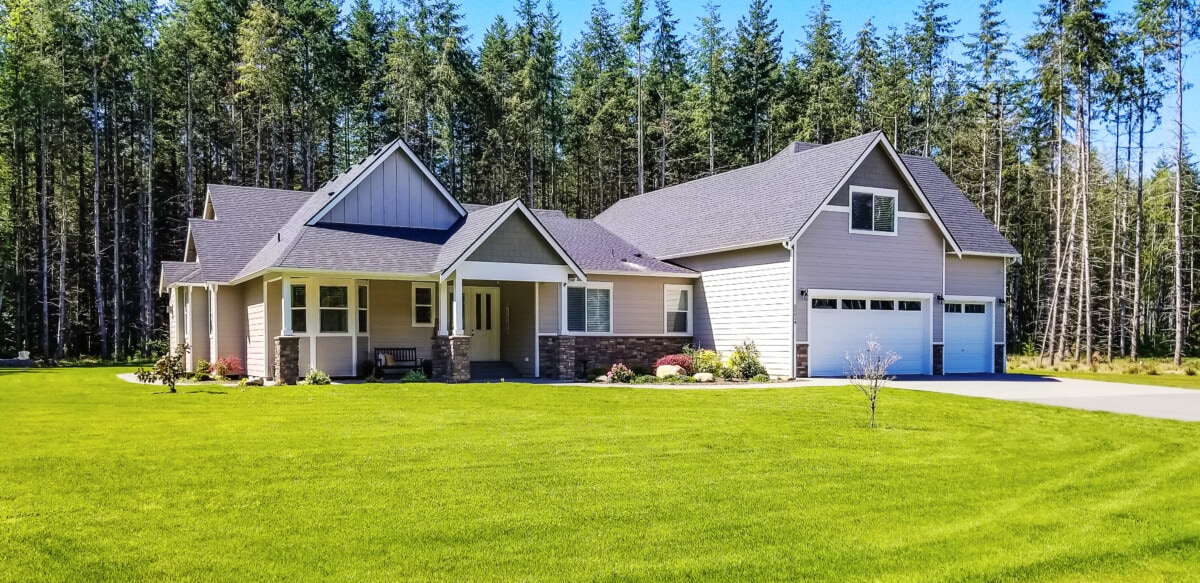
FAQs about foreclosed properties
Why are houses foreclosed?
Houses are foreclosed when homeowners fail to make several mortgage payments. Usually, this occurs due to job loss, serious conditions that prevent employment, serious home maintenance issues that homeowners can’t afford to divorce, or other types of debt. Foreclosure can negatively impact a homeowners credit score, so it’s often a last resort.
How does foreclosure work?
Foreclosure is a slow process – homes aren’t foreclosed after one or two missed mortgage payments. In general, banks are willing to work with their clients on a short-term basis. However, if sellers fail to make a payment for 90 to 120 days, depending on the lender and state law, a lender can move forward with foreclosure. Lenders will generally take less serious steps, like demand letters, before going to these lengths. However, if any of these attempts to solicit payment go unnoticed, foreclosure is virtually unavoidable.
When a foreclosure notice is filed, the court process begins. This process can vary from state to state, so understanding procedures based on residence is important for homeowners struggling to make payments. Foreclosure can take a year or more in simple cases, or as many as three or four years in more complex cases.
What’s the process for buying a home at auction?
On the day of the auction, come prepared with the money you plan to spend on a home. Most auctions require payment in full via cash, cashier’s check, or money order. If you win, you’ll be required to pay this amount in full. Some states allow cash to change hands the next day, in order to receive a certificate of sale. The certificate of title may take up to 10 days. Be aware that if the home’s owner files an objection and is not able to pay the amount owed in full, the property transfer will not go through. Don’t begin renovations or the moving process until you have a title in hand.
Can you buy a foreclosure with an FHA loan?
FHA loans, backed by the Federal Housing Administration, are government loans that are intended for lower-income borrowers and come with a lower down payment amount and reduced interest rate. While not necessarily common, it’s possible to use an FHA loan to purchase a foreclosure property.
As long as a foreclosed property meets the FHA guidelines as they pertain to value, habitability, and safety standards, your loan may be approved. A foreclosed property that meets FHA standards will likely be in better condition than other foreclosures. This will be determined by a fee appraisal prior to loan approval.

